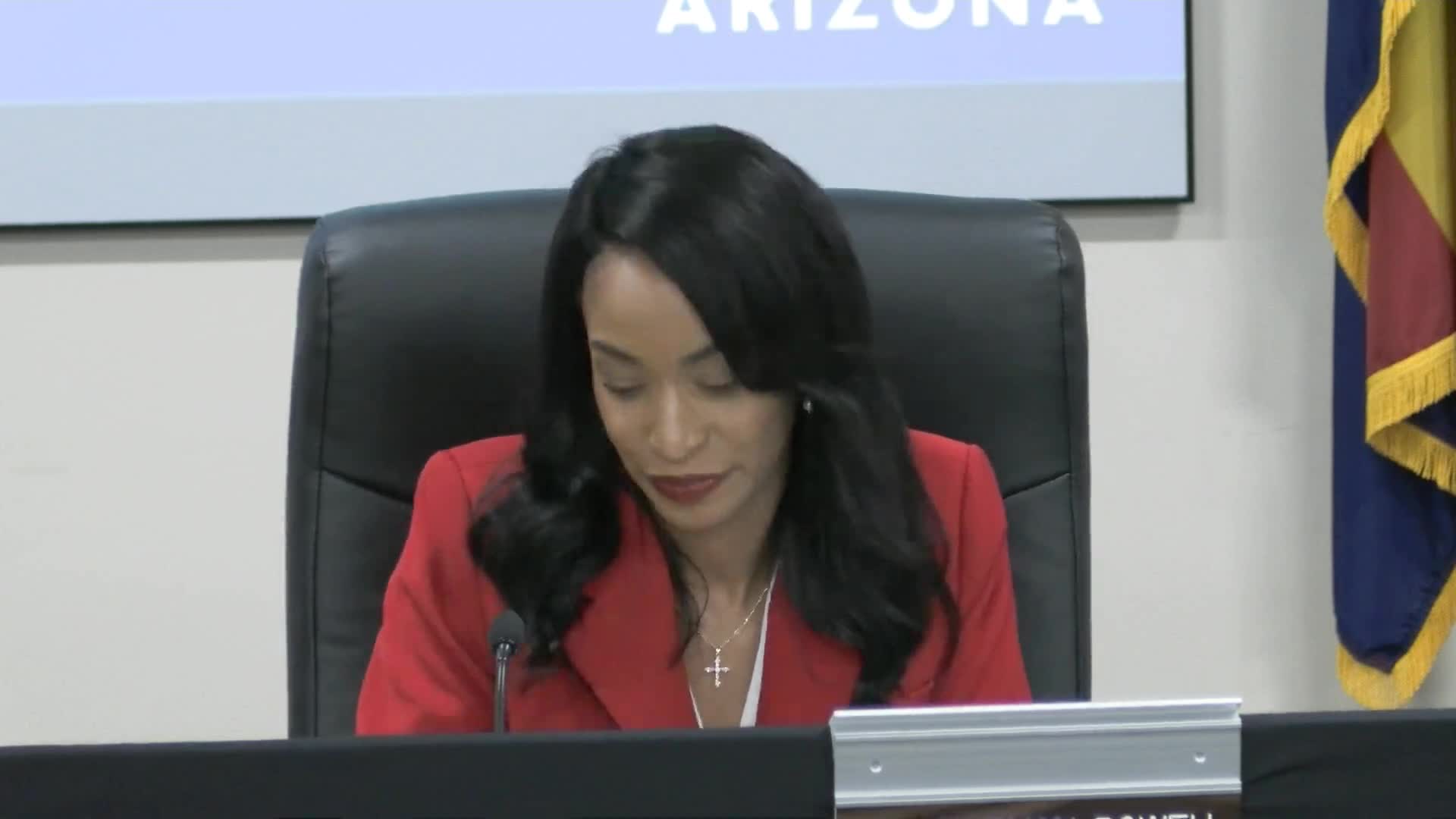Peoria planning commission recommends middle-housing code update, adds definition for 'urban services'
Get AI-powered insights, summaries, and transcripts
Subscribe
Summary
On Oct. 16 the Peoria Planning and Zoning Commission unanimously recommended approval of TA25-01, a middle-housing text amendment to comply with state law, and amended the draft to add electric and refuse to the definition of "urban services." The item will go to the City Council for final action.
The City of Peoria Planning and Zoning Commission on Oct. 16 voted unanimously to recommend approval of a middle-housing text amendment (TA25-01) to the City Council, with a modification to add electric service and refuse service to the ordinance's definition of "urban services." The amendment was presented to the commission as a staff-initiated zoning text amendment to comply with state law.
"Good evening, madam chair, members of the commission. I'm Elias Valencia. I'm 1 of your senior planners. And tonight I have the privilege of presenting before you the Bridal Housing Code Amendment, also known as, Submittal TA25-one," said Elias Valencia, senior planner, describing the staff proposal and the state mandate behind it.
Why it matters: the amendment is Peoria's response to state legislation (House Bill 2721) that requires cities to permit "middle housing" types (duplexes, triplexes, fourplexes and similar products) by Jan. 1, 2026. Valencia told commissioners the proposed changes affect five sections of Peoria's zoning ordinance and focus on defining middle housing, permitting it where required by statute, establishing development standards, and updating parking criteria.
Under the legislation and Peoria's draft, middle housing must be allowed in two situations: on qualifying single-family lots within a one-mile radius of the city's central business district and on developments of 10 contiguous acres or more zoned single-family, where at least 20% of the development may be middle housing. Valencia said staff expects the practical citywide impact to be limited because much of the city’s vacant land is already in planned area developments or planned community districts rather than standard single-family zoning.
Commission discussion centered on practical effects and limits of local control. Several commissioners raised accessibility and service concerns: Commissioner Gaynor and others asked whether middle housing would trigger Americans with Disabilities Act (ADA) parking requirements, with Valencia replying that the draft must treat qualifying middle housing lots no differently than single-family lots and that ADA accessibility is administered through the building code rather than through this zoning text amendment. Commissioners also asked whether the city should explicitly list the utilities that make an area "urban" for purposes of eligibility.
Plan Director Hockas told the commission staff had earlier included a definition of urban services in a prior draft and that adding "electric service and refuse service" to the definition could be done. After clarifying discussion, the commission's final recommendation to council included that explicit language.
Staff reported they had publicly posted the draft code, held briefings and study sessions with the commission and council, and had not received written letters of support or opposition; staff noted one phone inquiry that was treated as an inquiry rather than formal comment because it was not submitted in writing.
Action and next steps: the commission voted to recommend TA25-01 to City Council as modified to add electric and refuse service to the urban-services definition. The motion passed unanimously. The item will proceed to the Peoria City Council for final action.
Commissioners and staff framed the vote as compliance with state law while attempting to preserve neighborhood characteristics where possible. Valencia summarized staff's view: "Staff feels that we have captured all of that criteria in the modified text language. Where we were able to exercise flexibility, Staff feels that we have done what we can to protect and preserve neighborhood characteristics while meeting the intent for the legislation."
